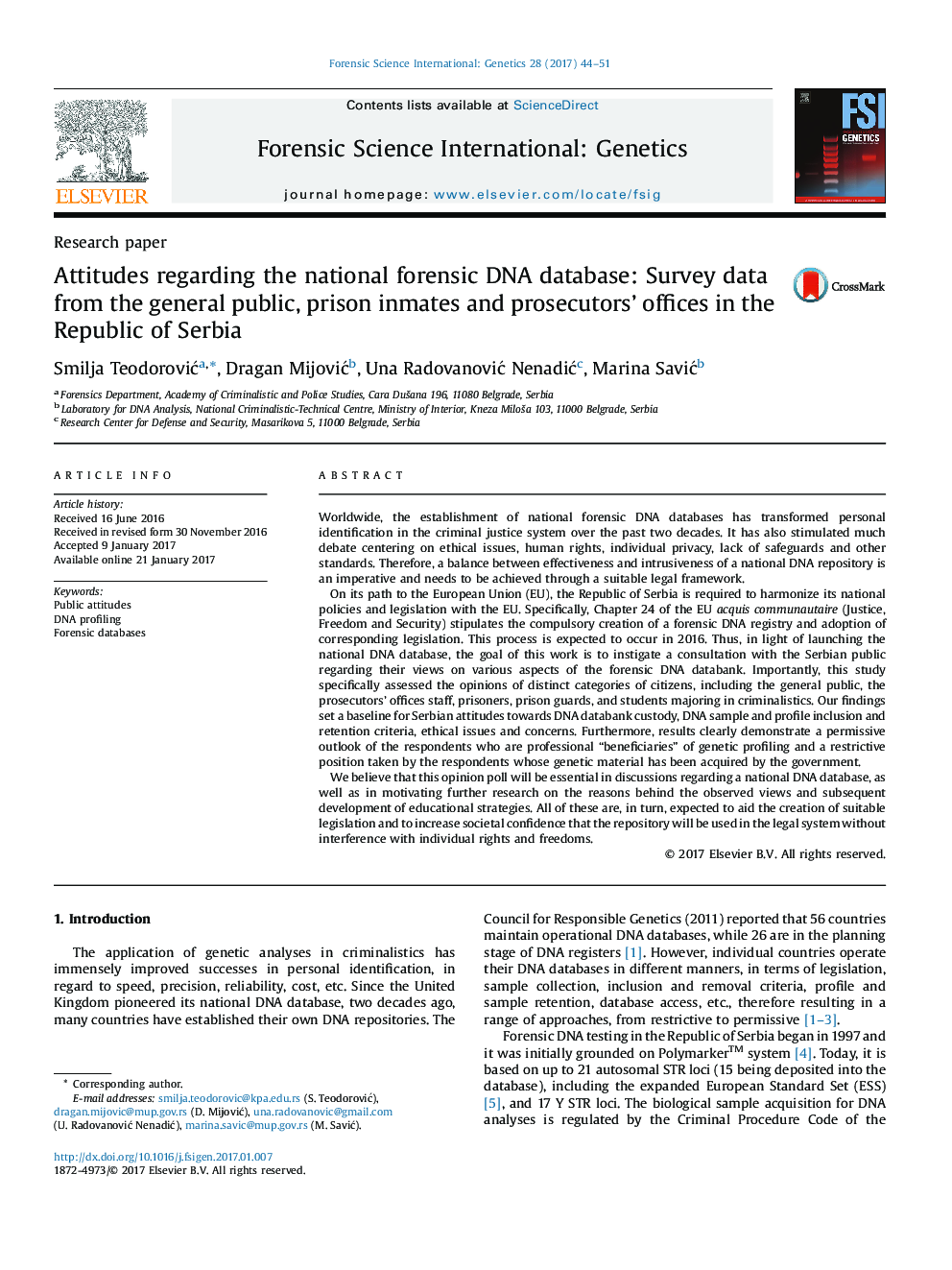| Article ID | Journal | Published Year | Pages | File Type |
|---|---|---|---|---|
| 6462820 | Forensic Science International: Genetics | 2017 | 8 Pages |
â¢The first Eastern European survey of public views on forensic DNA use is conducted.â¢Professionals linked to forensic genetics show permissive outlook on DNA databasing.â¢Respondents whose DNA profile has been retained by the state take restrictive stand.
Worldwide, the establishment of national forensic DNA databases has transformed personal identification in the criminal justice system over the past two decades. It has also stimulated much debate centering on ethical issues, human rights, individual privacy, lack of safeguards and other standards. Therefore, a balance between effectiveness and intrusiveness of a national DNA repository is an imperative and needs to be achieved through a suitable legal framework.On its path to the European Union (EU), the Republic of Serbia is required to harmonize its national policies and legislation with the EU. Specifically, Chapter 24 of the EU acquis communautaire (Justice, Freedom and Security) stipulates the compulsory creation of a forensic DNA registry and adoption of corresponding legislation. This process is expected to occur in 2016. Thus, in light of launching the national DNA database, the goal of this work is to instigate a consultation with the Serbian public regarding their views on various aspects of the forensic DNA databank. Importantly, this study specifically assessed the opinions of distinct categories of citizens, including the general public, the prosecutors' offices staff, prisoners, prison guards, and students majoring in criminalistics. Our findings set a baseline for Serbian attitudes towards DNA databank custody, DNA sample and profile inclusion and retention criteria, ethical issues and concerns. Furthermore, results clearly demonstrate a permissive outlook of the respondents who are professional “beneficiaries” of genetic profiling and a restrictive position taken by the respondents whose genetic material has been acquired by the government.We believe that this opinion poll will be essential in discussions regarding a national DNA database, as well as in motivating further research on the reasons behind the observed views and subsequent development of educational strategies. All of these are, in turn, expected to aid the creation of suitable legislation and to increase societal confidence that the repository will be used in the legal system without interference with individual rights and freedoms.
